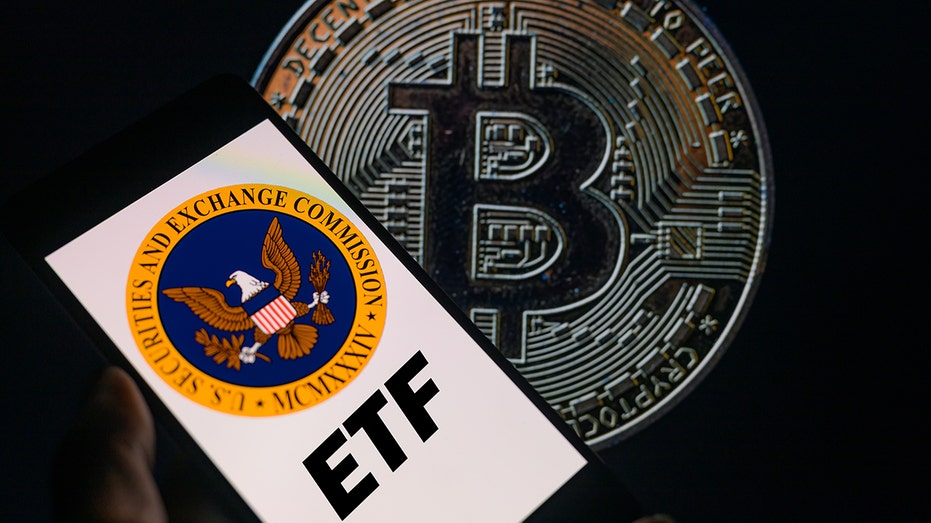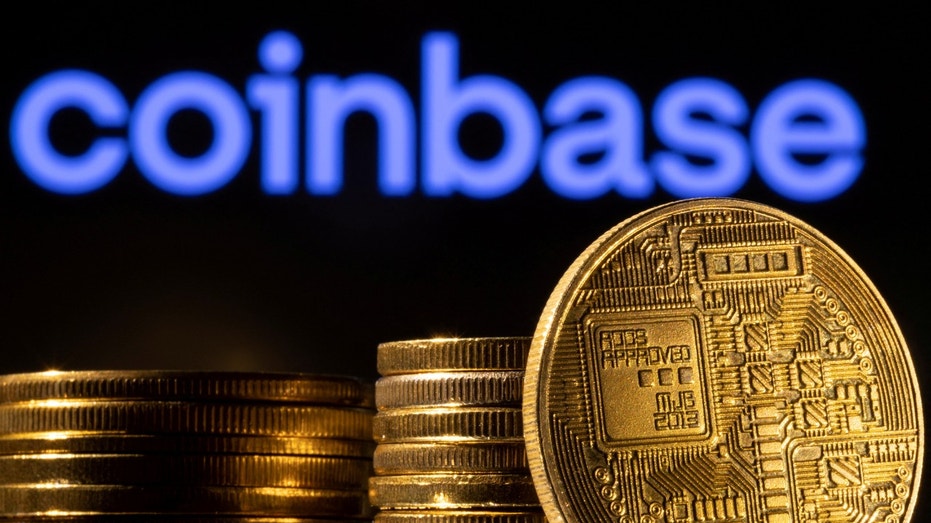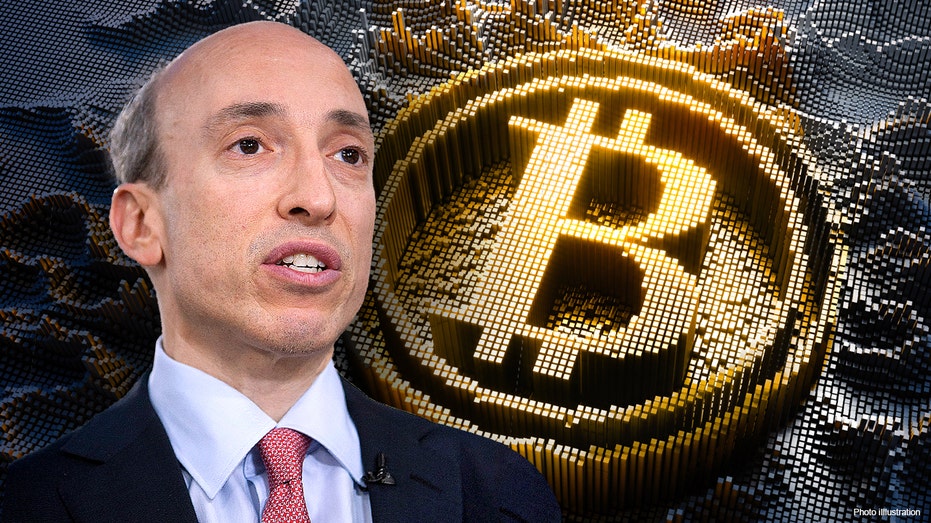Court decisions could rein in SEC authority over crypto industry
The SEC wants some tokens offered by crypto exchange Coinbase classified as securities, making it easier to regulate the industry
Federal southern district of New York Judge Katherine Polk Failla heard arguments during a five-hour hearing Wednesday afternoon in a case that could decide the regulatory future of the $1.7 trillion cryptocurrency industry.
Lawyers for the U.S's largest crypto exchange Coinbase argued that the courts should dismiss an SEC lawsuit alleging that the exchange violated securities laws by operating as an "unregistered broker dealer" in buying and selling similarly unregistered digital assets.
SEC DUPED, X ACCOUNT HACKED, BITCOIN ETF NOT APPROVED
Wall Street's top cop, the SEC, asked Failla to rule against Coinbase's motion to dismiss because the company, in the agency's view, clearly flouted securities laws, and that discovery for a future trial should begin immediately.

Bitcoin spiked 10% amid the downfall of Silicon Valley Bank. ((Photo credit should read KAREN BLEIER/AFP via Getty Images) / Getty Images)
Legal experts say it could take Failla anywhere from two to six weeks to make a decision. If and when the case advances, the outcome could mark an important precedent in U.S. crypto regulation.
If the court sides with Coinbase, it could significantly hamper SEC Chair Gary Gensler’s attempt to regulate the crypto business through various enforcement actions. Since becoming chairman, Gensler has brought more than fifty crypto enforcement actions for various rule violations. An SEC victory over Coinbase would allow Gensler to continue pursuing that agenda.
The lawsuit alleges that Coinbase is operating as an unregistered broker, exchange and clearing agency by offering thirteen tokens the SEC believes to be "securities," and thus in need of registration with the agency, just like a stock or bond.
Coinbase argues that no tokens sold on its platform constitute securities because there's no underlying investment contract between the token issuers and users who are buying the tokens on the secondary market.
VALKYRIE INVESTMENTS FIRST TO OFFER ETHER FUTURES THROUGH ETF
Gensler has said repeatedly during his tenure at the SEC, that most digital assets aside from Bitcoin and possibly Ethereum, constitute securities under the 1946 Howey Test, a Supreme Court decision that determines whether certain transactions qualify as investment contracts. If they do, they have to get registered with the Commission, a move crypto companies have resisted given the industry’s desire to remain outside of government control.

The seal of the U.S. Securities and Exchange Commission is being displayed on a smartphone, with Bitcoin visible on the screen in the background, in this photo illustration taken in Brussels, Belgium, on January 9, 2024. (Photo Illustration by Jonathan Raa/NurPhoto via Getty Images / Getty Images)
The crypto industry, for its part, says the current SEC registration process doesn't cater to the nuances of blockchain technology, and it's therefore impossible for them to simply "come in and register" their products.
It believes many token offerings don’t meet the Howey Test requirements because there's no underlying contract between issuers and buyers, a key requirement for satisfying the test. It also thinks the SEC is acting outside its mandate and that Congress should give jurisdiction to the Commodity Futures Trading Commission, known for a slightly lighter touch when it comes to regulation.
Failla has echoed the industry’s concerns that the SEC is broadening its horizons too much when it comes to crypto.
"I am concerned that what you’re asking for is too broad a definition of what constitutes a security," Failla said during Wednesday’s hearing. "I care about how the law develops in this case before me and I care what it means going forward."
The debate in the Coinbase case is being played out both in Congress and in other legal cases. In July, the crypto industry was handed a partial victory when U.S. Southern District Judge Torres ruled that the token XRP was not sold as an illegal security when it was traded between retail investors on exchanges. She also ruled that it was a security when it was sold by cross-border payments company Ripple Labs to institutional investors to finance the development of its platform.
Torres's decision made clear that digital assets are not themselves securities, but the way in which they are transacted could make them subject to SEC oversight. The SEC has said it intends to appeal the Ripple decision.
In August, another southern district judge, Jed Rakoff, known as the dean of securities jurists, sided with the SEC and ruled that Terraform Labs' LUNA and MIR tokens were indeed unregistered securities.
Both Rakoff's and Torres's decisions were brought up frequently during the Coinbase hearing with the SEC relying on Rakoff's ruling to support its argument, while Coinbase lawyers used Torres's decision regarding secondary market sales to support theirs.
Arguments from Coinbase, Ripple and others, that digital assets don't fit into the parameters of the Howey Test, have called into question whether securities laws written eighty years ago that were designed for the regulation of citrus grove investments, are still practical when it comes to regulating modern technology such as blockchain and artificial intelligence.
BLACKROCK LAYOFFS COME AS FIRM AWAITS BITCOIN ETF DECISION

FILE PHOTO: A representation of the cryptocurrency is seen in front of Coinbase logo in this illustration taken, March 4, 2022. (Reuters/Dado Ruvic/Illustration/File Photo / Reuters Photos)
Congress is keeping track of the regulatory debate.
GOP senator Cynthia Lummis from Wyoming asked Failla to dismiss the Coinbase suit because such enforcement actions will hamper the development of the underlying technology of crypto, known as the blockchain, which has transformational potential in reducing costs of various transactions. In an amicus brief in support of Coinbase, Lummis criticized the SEC for overstepping its authority.
"The SEC’s attempt to shoehorn an entire new class of assets into the existing definition of a ‘security,’ and thereby add to the definition enumerated by Congress, exceeds the SEC’s authority, encroaches on Congress’s lawmaking, and contravenes the separation of powers," Lummis wrote.
Lummis has been a vocal advocate of crypto, introducing legislation in the Senate that would help bring regulatory clarity to the industry. In the House, a handful of lawmakers, including Chairman of the Financial Services Committee Patrick McHenry, have also been championing crypto with bills that will establish so-called regulatory rules of the road.

Gary Gensler, chairman of the U.S. Commodity Futures Trading Commission (CFTC), speaks during a Bloomberg Television interview in New York, U.S., on Thursday, June 14, 2012. New York financial firms would move jobs overseas if the U.S. grants the ind (Scott Eells/Bloomberg via Getty Images / Getty Images)
GET FOX BUSINESS ON THE GO BY CLICKING HERE
Coinbase is not the only case that could have a significant impact on the SEC’s ability to regulate crypto. The Supreme Court is currently hearing arguments for the overturning of a 1984 precedent that says courts should defer to an agency’s reasonable interpretation of an ambiguous statute. SCOTUS’s conservative justices are expected to rule in favor of overturning what’s come to be known as the Chevron Doctrine. Doing so would significantly scale back the regulatory power of federal agencies like the SEC and could further restrict Gensler wielding power over the crypto industry.





















